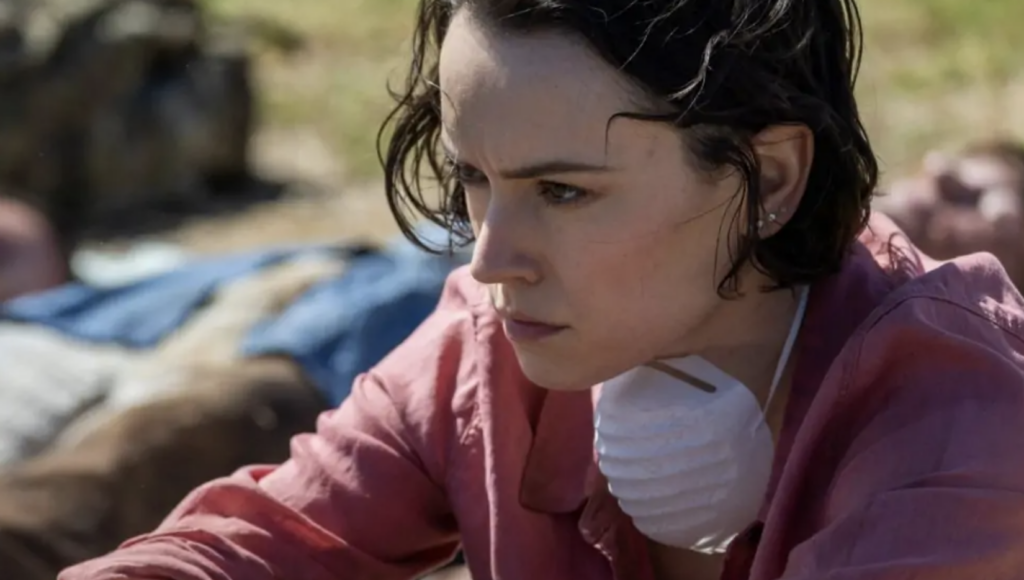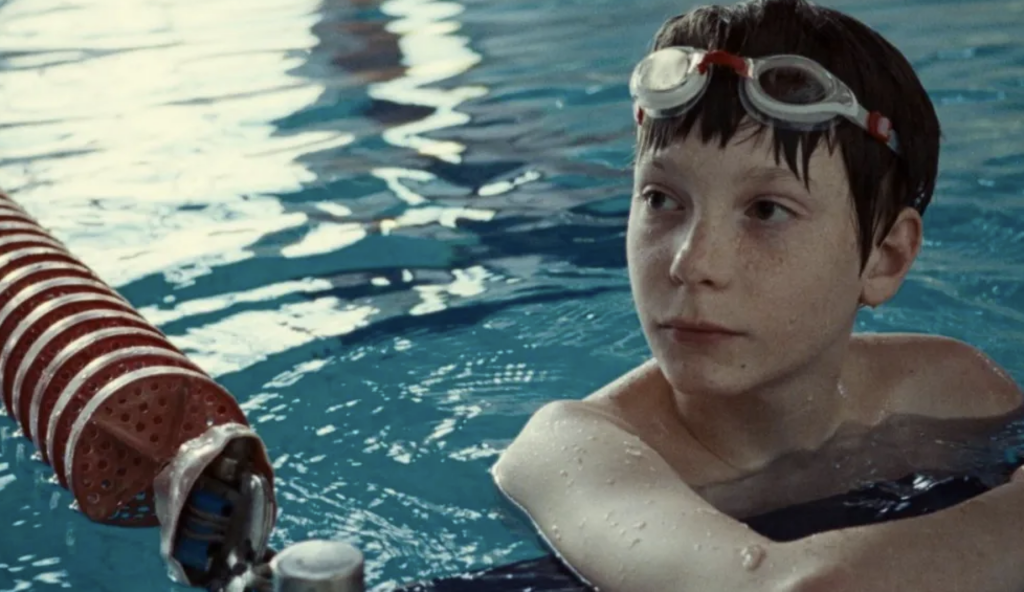American Psycho
Patrick (Christian Bale, Velvet Goldmine) brings his secretary, Jean (Chloë Sevigny, Boys Don’t Cry), to his Manhattan condo before their dinner at an overpriced bistro. Patrick opens his refrigerator and offers Jean some sorbet, which she accepts. Cut from Jean sitting in Patrick’s living room to the interior of Patrick’s stainless steel refrigerator: There’s a severed human female head on the top rack.
Meet Patrick Bateman, the protagonist of American Psycho, based on the Bret Easton Ellis novel. In toning down Ellis’ detailed description of Bateman’s atrocities, writer-director Mary Harron (I Shot Andy Warhol) and co-writer Guinevere Turner deliver a tastefully offensive film that comments on a specific time and place — New York in the Reagan ’80s. Ultimately, though, the film has no heart. That’s because Bateman, both in the novel and in most of the film, has no conscience about the acts he commits. He is not just the main character; he is the only character upon whom we focus.
Since there is no moral compass, Harron and Turner inject a strain of morality through voice-over narration in which Bateman describes himself as, essentially, a soulless vessel. This ambiguity is served well by the dialogue — crisp, precise, mundane. No one has any revelations or says anything interesting, and that’s why Bateman can ramble to a bartender or to his girlfriend his true self and not be understood or believed. In some scenes, Bateman uses double entendres that convey both self-denial and self-reproach. “Murders and executions” does sound like “mergers and acquisitions,” so Bateman can get away with saying either when a model asks him what he does.
Bateman is a wealthy, attractive 27-year-old man who doesn’t have to work but every day leaves his pristinely white and expensive yet barren apartment (that’s devoid of anything suggesting a real personality) and cocoons himself in a small office that’s just as pristine and barren. The office is in a brokerage firm; Patrick listens to CDs all day. His musical tastes are a menu of AOR radio: Whitney Houston, Genesis, Huey Lewis and the News. Harron and Turner put Bateman’s bland musical choices to subversive use; Bateman, as he’s preparing to murder someone, gives a dissertation on the career of Phil Collins and Genesis (he liked them only after Collins took over the lead vocals; before, they were too “artsy”). Elsewhere, John Cale’s haunting and electrifying score augments the action.
Harron and Turner deserve credit not only for making the film version of Ellis’ novel but also for attempting to give it structure and an underlying tone of moral decay. However, the film’s cold, almost documentary feel makes it difficult to feel sympathy for a man capable of saying that he might “break into tears” if he can’t get a table and of teasing a wino with his money clip before he takes a knife out of his briefcase and kills him. It is impossible not to judge Bateman. The conundrum of American Psycho is that only Bateman’s voice exists and we’re not entirely sure how much of what he’s experiencing is actually happening. Unlike with other film monsters, such as Alex in A Clockwork Orange or Hannibal Lecter in The Silence of the Lambs, there exists, in American Psycho, no other logic or conflicting force besides that of Bateman’s own twisted ethos. Even the detective, Donald Kimball (Willem Dafoe), investigating the disappearance of Paul Owen (Jared Leto), whom Bateman is shown killing, isn’t an adversary as much as he is a dinner companion.
The protagonist’s faulty perception carries through in every element of the film. Bateman’s wealthy peers (played by Justin Theroux, Matt Ross, and Leto) each are, with slicked-back hair and designer suits, intentionally interchangeable. A running gag of the film is that other characters mistake Bateman for someone else, thus enforcing the suspicion that Bateman’s world is as illusory as his perception of himself. With the exception of Sevigny, who evinces intelligence and compassion, the women in the film (Reese Witherspoon, Samantha Mathis) emerge as disembodied vapors in Chanel suits. Sevigny’s Jean bears the narrative and philosophical brunt of learning what Bateman is when she reads his day calendar, which is filled with pen drawings of his killing fantasies.
As admirable as Harron’s attempt, via Jean’s humanity, to bring some measure of sanity is, it brings no consequence in the plot. We have to wonder what good Jean’s knowledge will bring because, at the same moment, Bateman’s lawyer is telling him that his phone confession of murdering was “hilarious.” The scene, in an expensive restaurant, ups the ante on the killer’s success. Bateman fits in so well that he is mistaken for everyone but himself; with no identity there is no culpability. (R) Rating: 7




